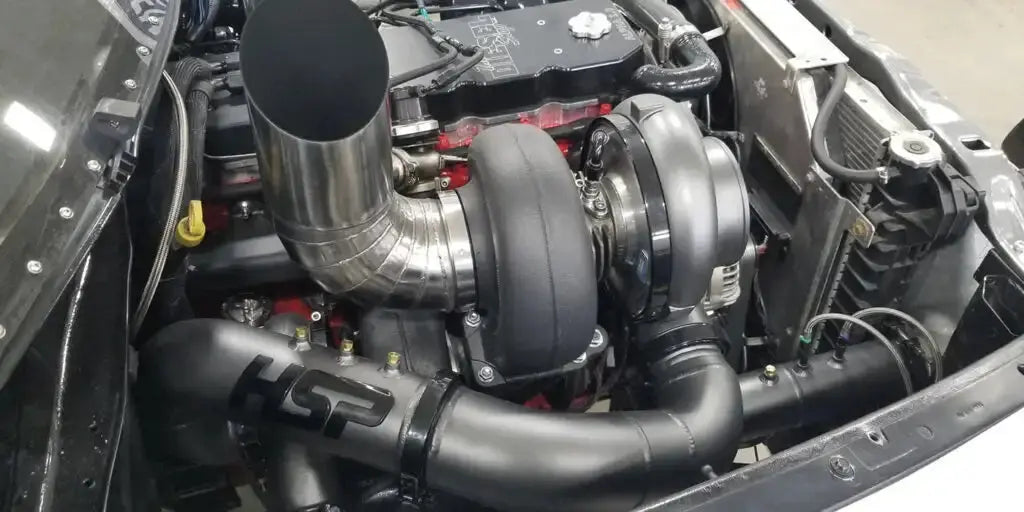Unlock Peak Perfo...
Aug 15, 2025

The 6.7-liter Cummins is a well-known diesel engine, but its factory emissions system—particularly the diesel particulate filter (DPF)—significantly impacts the turbocharger’s responsiveness and overall performance. Many owners opt for a Cummins delete kit to remove these restrictions, dramatically changing exhaust flow dynamics and turbo spool behavior. This article explores how DPF vs. deleted exhaust systems affect turbo spool characteristics and how a performance delete kit for Cummins can unleash the engine's true potential.
The stock 6.7 Cummins is designed to meet emissions standards, but the DPF creates several performance limitations:
· The DPF traps soot, creating a restrictive barrier in the exhaust stream.
· Higher backpressure slows turbo spool-up, increasing lag and reducing throttle response.
· During active regeneration, additional fuel is injected to burn off trapped soot.
· This process alters the exhaust gas temperature (EGT) and can cause inconsistent turbo performance.
· The DPF retains heat, which increases underhold temperatures and reduces charge air cooling efficiency.
· Hotter air leads to denser and less efficient combustion, further impeding spool-up.
Removing the DPF and other emissions components with a 6.7 Cummins Delete Kit changes the exhaust flow dynamics, resulting in:
· Without DPF restrictions, exhaust gases flow freely, allowing the turbo to spool quicker.
· Improved exhaust scavenging enhances boost buildup, especially at lower RPMs.
· No regeneration cycles mean no interruptions in performance.
· Smoother, more predictable boost curves improve drivability, especially under load.
· Reduced backpressure decreases exhaust gas temperatures, lowering stress on the turbo and engine.
· Cooler operating temps help preserve head gaskets, pistons, and other critical components.
· Free-flowing exhaust reduces pumping losses, improving combustion efficiency.
· Many users report noticeable MPG gains after deleting their 6.7 Cummins.
A complete Cummins emissions delete solution should include:
· High-Flow Downpipe & Exhaust – Replaces the restrictive factory piping for optimal flow.
· EGR Delete Components – Eliminates recirculated soot, keeping the intake cleaner.
· Tuning Solution – Proper tuning adjusts fuel maps and turbo logic for maximum gains.
· Upgraded Intake & Intercooler Piping – Ensures the turbo receives ample airflow.
For those seeking the best results, pairing a delete kit for 6.7 Cummins with a high-performance turbo upgrade further enhances spool characteristics and power potential.
The factory DPF system impedes the 6.7 Cummins' turbo response, but a proven delete kit can restore -- and even improve -- its performance. By eliminating exhaust restrictors, owners benefit from faster spool, lower EGT, better fuel economy and a more responsive driving experience.
Ready to experience the difference? Explore our top-rated 6.7 Cummins Delete Kits and other high-performance Cummins parts for a transformed driving experience.